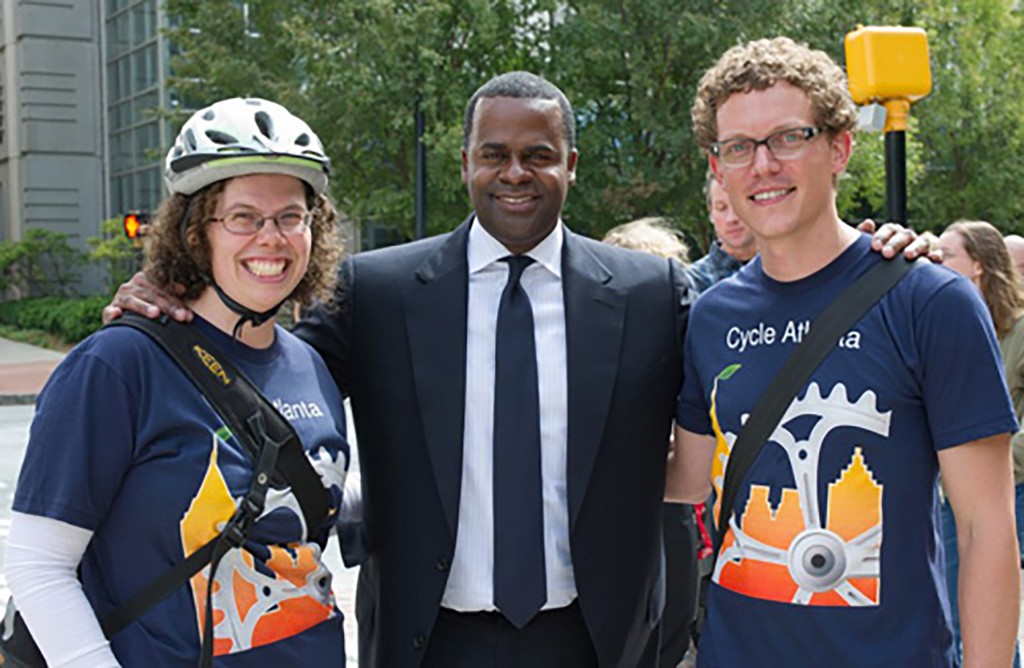
Christopher Le Dantec
Civic engagement is changing: new venues of public participation are arising out of the development and mass-availability of new mobile technologies and social media; new practices of governance and democratic discourse are arising out of the collection and representation of data; new interaction design practices are emerging from working directly in public and community settings. Running through these changes to civic engagement is a new-found fascination with data and with the distributed tools for collecting, representing, and analyzing that data. Systems like PublicStuff and SeeClickFix turn to citizens to contribute data about city infrastructure to help local governments provide services. Apps like StreetBump in Boston, or Cycle Atlanta similarly turn mobile phones into sensors to respectively detect potholes and the routes of cyclists through the city. This fixation on data raises a host of important issues of equity and social justice, where we need to build tools and practices that don’t just employ data to support and govern our communities, but where those tools are socially and culturally situated and informed by the values and goals of the communities that are creating—and being created by—myriad forms of data.
My background is decidedly technical: originally trained as an engineer and spending the better part of a decade as an interaction designer, I quickly grew to realize that of the many things that are possible with technology, the only possibilities that truly count are those that resonate with human values. It was at this point that I re-entered academia, first as a Ph.D. student at Georgia Tech (Human-Centered Computing), and now as faculty. My shift from industry to academia was driven by a commitment to creating technologies informed by a careful consideration of human values: the principles, the ethics, and the identities which inform our relations in the world. My position is deeply informed by the humanities through both theoretical perspectives and design practice, and it is uniquely tied to a robust understanding of computing.
I am concerned with issues of equity and social justice as they are enacted and foreclosed upon in new forms of digital democracy.
In particular, I am concerned with issues of equity and social justice as they are enacted and foreclosed upon in new forms of digital democracy. By way of example, much of my early research was focused on examining the impact of the Internet and mobile phones on the urban homeless: how do the urban homeless use these technologies? How do social service providers use these technologies? How are these uses shaping what it means to be seeking and providing care for some of the most vulnerable members of society? On the one hand, the Internet and data-driven management has helped care providers track their services and establish outcomes-based programs; on the other, these instrumental uses of technology enforce strict categories of care and dehumanize the homeless by treating them as a symptom to be remedied rather than involving them in the co-construction of aid and programs to return stability to their lives. By turning the homeless into data and then relying on that data to inform services, funding, and policy, we miss the opportunity to use the same technologies to support the interpersonal and collaborative relationships between care provider and care receiver.
Another example comes from more recent research I have been doing with the City of Atlanta. In collaboration with faculty in Civil Engineering, I and my students launched a smart phone app so that cyclists in Atlanta could record their rides and share that data with city planners. The City, for its part, is intent on substantially increasing the bike lanes and facilities to make the Atlanta urban core a more bike-friendly place. One of their stated goals when beginning the project to expand cycling infrastructure was to broaden public input and participation in the process of developing those plans. Smartphone apps that enable real-time data collection offered clear benefits for meeting such a goal: it enabled the City to collect data it never would have had otherwise, it enrolled a large public of cyclists in the collection of that data, and it created a new kind of public participation in Atlanta, one that was pro-active in shaping planning decisions. Yet, even with these clearly established goals, a number of difficult challenges arise: the recorded routes make some parts of the city very visible to planners, while other parts—particularly neighborhoods with low socio-economic status—remain under-represented; different kinds of participation with the smartphone app greatly impacts the data collected—riders who record their ride every day versus riders who only record rides once in a while or if they travel a new path; a new form of civic labor is created and deployed and the relationship of participating through the app and through the data collected versus more traditional forms of public participation remains to be examined.
The imperative here is that in both of the areas of work I’m involved with, the technology enables multiple opportunities to improve people’s lives. The open question is which people’s lives are improved, and as technology is developed for civic and community goals (rather than industrial and commercial goals) turning the to the humanities is crucial in order to inform first how we conceptualize public participation, how we position the role of design in creating capacities to act and not just products, and how we approach new forms of distributed labor—a la crowdsourcing and social media—to develop collective and collaborative responses to social issues.
